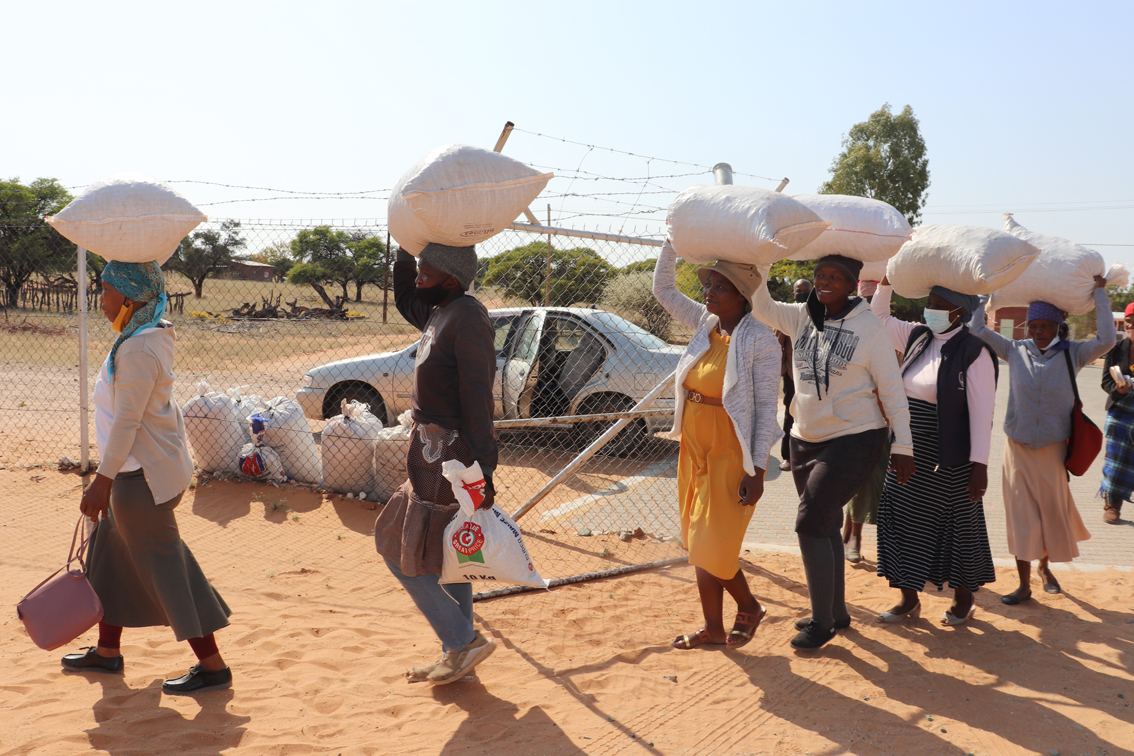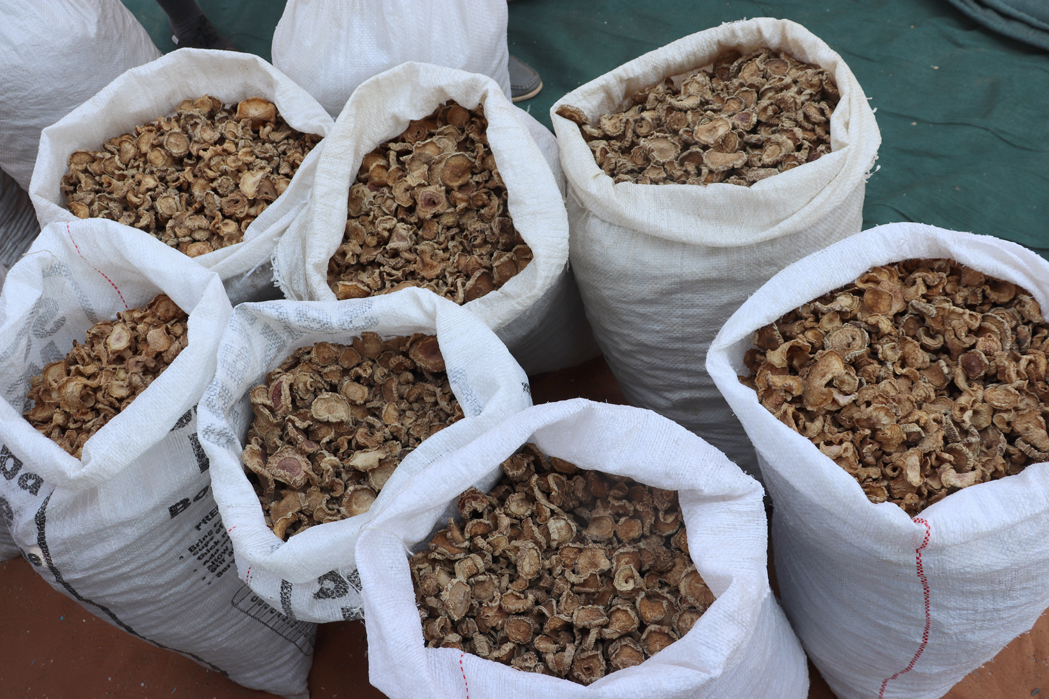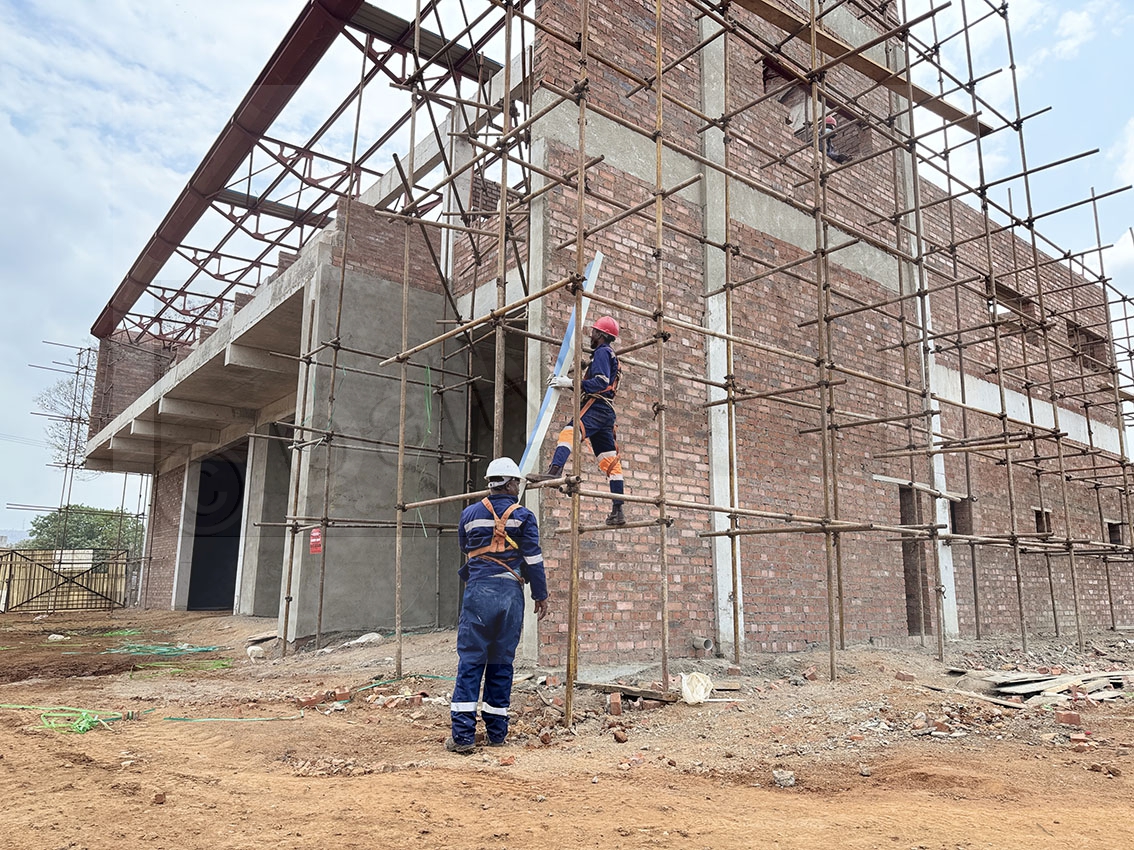Collectors make P340 000 from Sengaparile
12 Sep 2022
Kgalagadi South communities have made around P340 000 from the sale of Sengaparile or Devils Claw in 2021 which grows widely in the region.
Speaking during the sale of the indigenous plant in Omaweneno recently, an official of the Department of Forestry and Range Resources, Mr Tawana Maunganidze said the plant also created temporary self-employment for communities in Kgalagadi South.
Mr Maunganidze, who is the departments Kgalagadi District coordinator, said they issued 541 permits during the harvesting season in 2021 and that the season spanned from May to September. He noted that each harvesters permit cost P5 while a dealer’s permit cost P110.
He noted that Sengaparile grew widely in the veld from Kokotsha to Struizendam. He also praised harvesters for complying with the rules and regulations. He said they were formulated to ensure sustainability of the plant.
Mr Maunganidze said this year’s sale started in Kokotsha and that the community made P86 000. In Bray they made over P26 000 in Werda over P40 000 while at Omaweneno they made over P61 000. He noted that this week the buyer would be in Gakhibane and Khawa and urged members of the community to come and sell.
Mr Maunganidze noted that last year Sengaparile was sold at P28 per kilogram and that this year it was P32 per kg due to inflation and the challenges that harvesters faced in the bush. He expressed optimism that communities would make more money this year compared to last year. He also noted that Sengaparile was abundant this year due to good rains. He appreciated that harvesters continued to follow good environmental practices by planting back the tap root after harvesting the tubers.
However, he expressed concern about the frequent veld fire outbreaks in the district, saying they could affect future harvests and cause other indigenous plants to become extinct.
Mr Gerrit Struyf of Matebeleng Milling Company, who buys tonnes of the indigenous plant every year from communities, said Sengaparile was renowned for its medicinal properties.
He said they packaged the raw plant and exported it to Europe under the Economic Partnership Agreement and that a smaller percentage was sold to local pharmacies.
In an interview, the harvesters called for a price increase. They argued that they had to walk long distances in the bush to get to the medicinal plant. Omaweneno resident, Mr Rodgers Marutshe said proceeds from the plant helped him to gain temporary employment and that the money helped his family.
Ms Segametsi Kuruthu said they were facilitated and got their money instantly after sale. “It was my first time harvesting and I made P2 800. I want to buy something that will remind me of my hard work. I am not going to buy food, I am going to buy something that will last a lifetime,” she said.
For Ms Same Serepelele, who is unemployed, the money was used to pay school levy, school uniform, clothing and food.
Ms Elizabeth Kgotshane said she made over P7 000 after selling eight bags of Sengaparile last year and that this year she had 10 bags.
Sengaparile is an indigenous plant native to Botswana and is found mostly in the Kgalagadi region where it has been used for different conditions. It gets its name from the tiny hooks that cover its fruit. According to indigenous knowledge, the plant was used to treat pain, liver and kidney problems as well as fever and malaria. It has also been used in ointments to heal sores, boils and other skin problems. ENDS
Source : BOPA
Author : Calviniah Kgautlhe
Location : OMAWENENO
Event : INTERVIEW
Date : 12 Sep 2022







